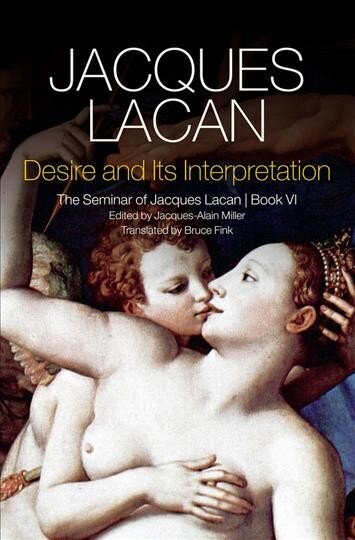-
Dārza preces
-
Sports, tūrisms un atpūta
- Koferi, ceļojumu somas
- Makšķerēšanas piederumi
- Grili, mangali, kūpinātavas
- Āra baseini, baseinu piederumi
- Batuti
- Piepūšamās rotaļlietas un pludmales preces
- Laivas, kajaki un to piederumi
- Spēles brīvā dabā
- Azartspēles, pokers
- Spēļu galdi
- Medību piederumi
- Šūpuļtīkli, gultas, nojumes un lapenes, šūpuļdīvāni
- Bērnu izklaidei ārā
- Mugursomas un somas
- Fitnesa inventārs
- Sporta somas un mugursomas
- Masāžas piederumi
- Ūdens sports
- Ķermeņa daļu fiksatori
- Futbols
- Rakešu sporta veidi
- Bokss un austrumu cīņas
- Basketbols
- Nūjošanas nūjas
- Volejbols
- Šautriņmešana, dārts
- Disku golfs
- Pedometri, hronometri, sirds ritma monitori
- Bumbu pumpji un adatas
- Beisbols
- Baleta apģērbs
- Florbols
- Golfs
- Zirglietas
- Handbols
- Hanteles, svaru stieņi un diski
- Bumbas
- Velosipēdi, skrituļslidas, skrituļdēļi
- Trenažieri, fitnesa inventārs
- Spēļu galdi
- Aminoskābes
- Ogļhidrāti
- Proteīni
- Batoniņi
- Citas piedevas un preparāti
- Uztura bagātinātāji enerģijai
- Funkcionālā pārtika
- Glutamīni
- Kreatīni
- L-karnitīns
- Uztura bagātinātāji un preparāti muskuļu masas palielināšanai
- Uztura bagātinātāji un preparāti locītavām
- Uztura bagātinātāji atjaunošanai pēc slodzes
- Tauku dedzinātāji
- Uztura bagātinātāji un preparāti tievēšanai
- Testosterona veicinātāji
- Vitamīni
-
Rotaļlietas, bērnu preces
- Higiēna un veselība
- Bērnu barošanai
- Bērnu rati un aksesuāri
- Autosēdekļi un aksesuāri
- Preces māmiņām
- Manēžas
- Bērnu šūpuļkrēsliņi
- Bērnu pārtika
- Zīdaiņu matrači
- Slingi, ķengursomas
- Staigulīši
- Mazuļa nospiedumi
- Bērnu gultas veļa
- Autiņbiksītes
- Jaundzimušajiem
- Bērnu drošības preces
- Zīdaiņu gultiņas
- Zīdaiņu apģērbs
-
Datortehnika
- Iekšējie cietie diski (HDD, SSD, Hybrid)
- Datoru korpusi
- Operatīvā atmiņa (RAM)
- Videokartes (GPU)
- Mātesplates
- Barošanas bloki (PSU)
- Datora ventilatori
- Komponentu piederumi
- Procesora dzesētāji
- Termopastas
- Procesori (CPU)
- Diskdziņi
- Piederumi korpusiem
- Skaņas kartes
- Kontrolieri
- Ūdens dzesēšana - komplekti
- Ūdens dzesēšana - aksesuāri
- TV uztvērēji, FM, video kartes
- Grafisko karšu dzesētāji
-
Mobilie telefoni, planšetdatori, Foto
- Telefonu vāciņi, maciņi
- Ekrāna aizsargstikli
- Mobilie telefoni
- Lādētāji un adapteri
- Savienotājkabeļi
- Lādētāji-akumulatori (Power bank)
- Auto turētāji
- Atmiņas kartes mobilajiem telefoniem
- Mobilo telefonu aksesuāri
- Akumulatori mobilajiem telefoniem
- Selfie Sticks
- Bezvadu garnitūra
- Telefonu rezerves daļas un instrumenti to remontam
- Austiņas
-
Mēbeles un interjers
- Dārza mēbeļu komplekti
- Dārza krēsli
- Saulessargi, markīzes un statīvi
- Krēslu paliktņi
- Dārza nojumes un lapenes
- Dārza galdi
- Šūpuļtīkli
- Sauļošanās krēsli
- Dārza soli
- Dārza šūpoles
- Dārza mēbeles bērniem
- Dārza mēbeļu kolekcijas
- Smilšu kastes, smiltis
- Āra paklāji
- Virtuves un ēdamistabas krēsli
- Virtuves galdi, ēdamgaldi
- Virtuves skapīši
- Ēdamistabas komplekti
- Virtuves komplekti
- Galda virsmas
- Virtuves furnitūra
- Mēbeļu kolekcijas virtuvei
-
Smaržas, kosmētika
-
TV un Sadzīves tehnika
- Elektriskās tējkannas
- Kafijas automāti
- Taukvāres katli, aerogrili
- Ūdens filtri
- Blenderi, smalcinātāji
- Virtuves svari
- Mikseri
- Smūtiju blenderi
- Īpašas ierīces ēdiena pagatavošanai
- Virtuves kombaini
- Vafeļu pannas un elektriskās pankūku pannas
- Sviestmaižu tosteri
- Tosteri
- Vakuuma iepakotāji
- Elektriskie grili
- Multivārāmie katli
- Sulu spiedes
- Kafijas dzirnaviņas
- Gaļas maļamās mašīnas
- Gāzētā ūdens aparāti
- Diedzēšanas trauki, augu lampas
- Augļu žāvētāji
- Griezēji, nažu asināmie
- Ūdens aparāti
- Maizes krāsnis
-
Mājsaimniecības preces
- Virtuves piederumi
- Trauki, šķīvji, pusdienu servīzes
- Glāzes, krūzes, karafes
- Pannas
- Katli, tvaika katli
- Cepamais papīrs, trauki, formas
- Naži un to piederumi
- Trauki pārtikas uzglabāšanai
- Termosi, termokrūzes
- Kafijas kannas, tējkannas
- Galda piederumi
- Garšvielu trauki, dzirnaviņas
- Garšvielas, garšvielu komplekti
- Griešanas dēlīši
- Trauki un piederumi konservēšanai
- Ūdens pudeles
- Vienreizējie trauki tematiskiem svētkiem
- Ūdens filtri
-
Mājai un remontam
- Gaisa mitrinātāji
- Meteostacijas, āra termometri
- Ventilatori
- Ēteriskās eļļas difuzoriem
- Gaisa sausinātāji, mitruma savācēji
- Gaisa kondicionieri, siltumsūkņi, rekuperatori
- Gaisa attīrītāji
- Ventilatori vannas istabai
- Piederumi gaisa regulēšanas iekārtām
- Sūkņi tīram ūdenim
- Kanalizācijas sūkņi, ūdens sūkņi netīram ūdenim
- Hidrofori
- Dārza sūkņi
- Strūklaku sūkņi
- Kanalizācijas vāki
- Benzīna ūdens sūkņi
- Fototapetes
- Līmplēves
- Tapetes
- Griestu, sienu dekoru elementi
- Pašlīmējošā plēve uz pasūtījumu
- Sienas flīzes
-
Auto preces
-
Apģērbi, apavi, aksesuāri
-
Zoo preces
- Sausā barība kaķiem
- Kaķu mājas, nagu asināmie
- Smiltis un pakaiši
- Konservi kaķiem
- Kaķu tualetes
- Rotaļlietas kaķiem
- Gardumi kaķiem
- Pavadas, apkakles, siksnas kaķiem
- Vitamīni, uztura bagātinātāji, pretparazītu līdzekļi kaķiem
- Bļodas, kastes pārtikas
- Gultas, spilveni un būdas
- Transportēšanas būri, somas
- Kosmētiskie līdzekļi kaķiem
- Kopšanas līdzekļi kaķiem
- Sausā barība suņiem
- Suņu gultas, spilveni, būdas
- Kopšanas līdzekļi dzīvniekiem
- Transportēšanas būri, somas
- Bļodas, kastes pārtikas
- Gardumi suņiem
- Apkakles, siksnas suņiem
- Suņu pavadas
- Konservi suņiem
- Vitamīni, uztura bagātinātāji, pretparazītu līdzekļi suņiem
- Suņu rotaļlietas
- Apģērbi suņiem
- Kosmētiskie līdzekļi dzīvniekiem
- Ceļojumu piederumi
- Piederumi suņu trenēšanai
-
Preces pieaugušajiem - virs18.lv
virs18.lv specializētais veikals pieaugušajiem
Preces pieaugušajiem specializētajā interneta veikalā virs18.lv var apskatīt tikai apmeklētāji, kuri ir vismaz 18 gadus veci. Šajā vietnē sniegtā informācija var nelabvēlīgi ietekmēt personas, kas ir jaunākas par 18 gadiem.Skatīt preces -
Dāvanas, svētku atribūti
- Ziemassvētku lampiņas, LED virtenes
- Ziemassvētku dekorācijas
- Mākslīgās egles, vainagi, statīvi
- Eglīšu rotājumi
- Dāvanu maisiņi un dāvanu iepakojums
- Adventes kalendāri
- Smaržas viņai
- Kosmētika viņai
- Aksesuāri sievietēm
- Mobilie telefoni
- Bezvadu austiņas
- Aromātu difuzori
- Putekļu sūcēji - roboti
- Kafijas automāti
- Viedpulksteņi un fitnesa aproces
- Taukvāres katli, aerogrili
- Mājas aromāti
- Matu veidotāji, taisnotāji
- Epilatori
- Matu fēni
- Sejas kopšanas ierīces
- Elektriskās zobu birstes
-
Grāmatas
-
Aizsardzības, dezinfekcijas, medicīnas preces
- Maskas, respiratori
- Aizsargbarjeras, dezinfekcijas līdzekļu dozatori
- Aizsargbrilles, sejas vairogi
- Dezinfekcijas līdzekļi
- Vienreizlietojamie cimdi
- Dezinfekcijas līdzekļi virsmām
- Pārtikas preces
-
Gudrā māja
- Outlet veikals
-
Preces birojam, skolai, radošiem darbiem
Rādīt vairāk kategoriju
 Iespējams, labākais piedāvājums tirgū!* Ieskatieties!
Iespējams, labākais piedāvājums tirgū!* Ieskatieties! 





